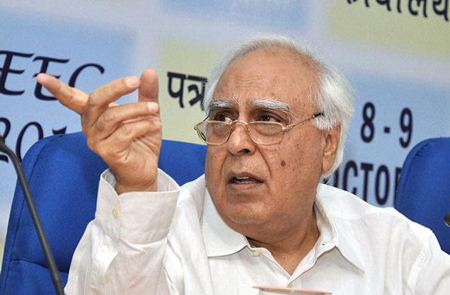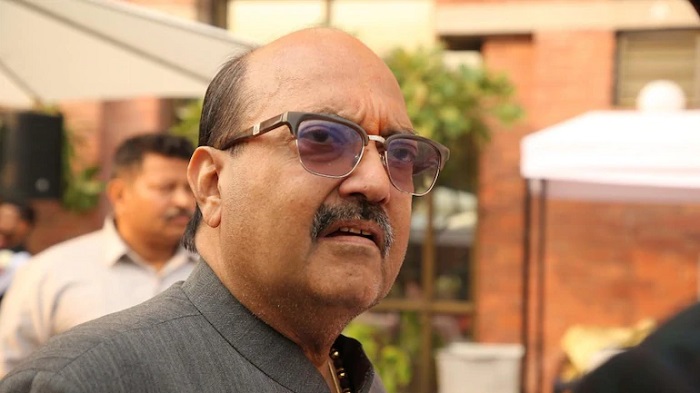New Delhi, Feb 11: The Aam Aadmi Party on Tuesday appeared to be heading back to power for a second term in Delhi with the party leading in 52 seats of the 70 and the BJP ahead in 18 as votes for last week's assembly elections were counted, according to Election Commission figures. The contest for political power over the national capital was a bipolar one with the Congress nowhere in the reckoning, according to initial trends.
AAP supremo and chief minister Arvind Kejriwal was leading in the New Delhi seat by 4,300 seats, while his deputy Manish Sisodia from Patparganj seat was ahead by 102 votes.
BJP leader Vijender Gupta, who is also leader of opposition in the Delhi legislative assembly, was trailing by over 1,200 votes from Rohini.
As early celebrations broke out in the AAP headquarters in Rouse Avenue, BJP's Delhi unit chief Manoj Tiwari asked his party supporters not to lose hope.
"There are 27 seats where the difference of votes is between 700 to 1,000," Tiwari told reporters.
Looking ahead at victory, he said he was not nervous and was ready to take on the responsibilities that a win would bring.
"All talk is over. We have to wait for the blessings of the people. I am confident it will be a good day for BJP. We are coming to power in Delhi today. Don't be surprised if we win 55 seats," Tiwari said.
Kejriwal, who had led his party to a spectacular win of 67 of 70 seats in 2015, is expected to address party workers and the media later in the day. However, his party workers were upbeat and in celebratory mode.
"We have been saying since the beginning that the upcoming polls will be fought on the basis of work done by us... You wait and watch, we will register a massive win," AAP spokesperson Sanjay Singh told reporters.
"We hope we get such a clear majority that a message goes out that doing Hindu-Muslim politics will not work anymore," said AAP volunteer Fareen Khan at the party office.
The headquarters were decorated with blue and white balloons and big cutouts of Kejriwal were placed in different parts of the office.
Labour minister and AAP's Delhi unit convenor Gopal Rai was leading in Badarpur constituency by 1,994 votes.
Atishi, AAP's Kalkaji candidate, who was also instrumental in the transformation of Delhi government schools, was trailing by 190 votes.
AAP's Timarpur candidate Dilip Pandey was leading by over 1,500 votes.
BJP's Tajinder Singh Bagga was trailing on Hari Nagar seat by over 50 votes, while AAP's Raghav Chadha is leading from Rajinder Nagar constituency.
Congress' Chandni Chowk candidate Alka Lamba, who is sitting MLA from the constituency, was trailing by over 5,800 votes.
Counting centres are spread across 21 locations in 11 districts, including at the CWG Sports Complex in east Delhi, NSIT Dwarka in west Delhi, Meerabai Institute of Technology and G B Pant Institute of Technology in southeast Delhi, Sir CV Raman ITI, Dheerpur in central Delhi, and Rajiv Gandhi Stadium in Bawana in north Delhi.
The assembly elections were held on February 8.
A total of 672 candidates, including 593 men and 79 women, were in the fray for the hotly contested, often divisive polls with the anti-CAA protests in Shaheen Bagh occupying centrestage towards the end of the campaign.
While the AAP, of course, put forward Kejriwal, Prime Minister Narendra Modi, home minister Amit Shah and Uttar Pradesh chief minister Yogi Adityanath were among those who extensively campaigned for the BJP.
The Congress, still recovering maybe from the death of its three-time Delhi chief minister Sheila Dikshit in July last year, got into campaign mode much later. Former prime minister Manmohan Singh and party leaders Rahul Gandhi and Priyanka Gandhi were among those who campaigned for the Congress.







Comments
Add new comment